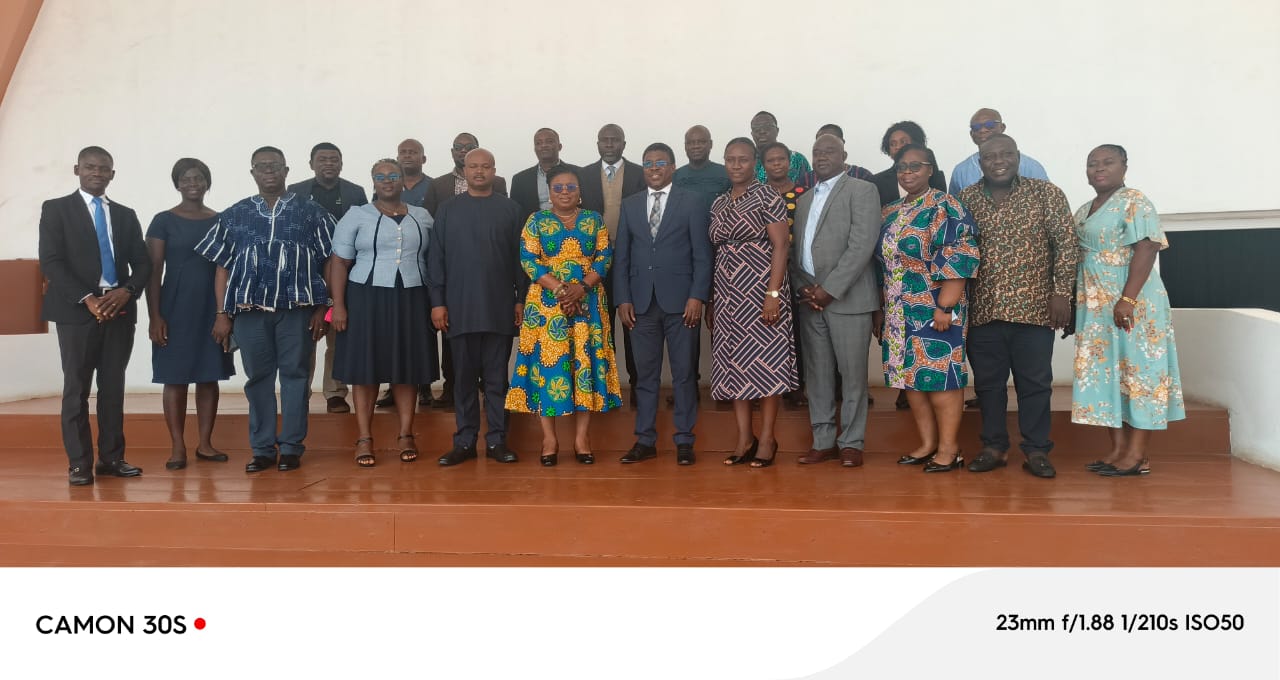
By PROSPER AGBENYTEGA
The Government of Ghana has officially inaugurated a Technical Committee tasked with finalizing the next phase of the National Public Sector Reform Strategy (NPSRS), which will span 2025 to 2029. The new strategy is expected to build on past reforms and deliver a more responsive, efficient, and citizen-focused public service.
The inauguration was led by the Minister of State in charge of Public Sector Reforms, Lydia Lamisi Akanvariba, who emphasized the government’s commitment to building a modern and accountable public sector that meets the evolving needs of Ghanaians.
“This strategy will serve as a blueprint to transform the public sector into a modular, efficient, and dependable engine for national service delivery,” the Minister noted. “We are moving away from fragmented interventions to a more coherent, long-term approach that avoids the pitfalls of past efforts.”
A Five-Year, Robust Plan
Unlike previous strategies which lasted for two or three years, the 2025–2029 plan is designed to span five years, allowing for more in-depth monitoring and meaningful evaluation.
According to Madam Akanvariba, the revised strategy is not just a continuation but a reflection on the successes, shortcomings, and challenges of the 2018–2023 reform framework. “This time, we are determined to craft a more robust and enduring document that can truly reshape how public institutions function,” she said.
She explained that the reform touches on every level of public service, as defined under Article 191 of the Constitution, from local government structures to major ministries like Transport and Foreign Affairs.
“This isn’t just about structures. It’s about the people – the civil servants and public officers – who are the face of government to the citizen,” she stressed.
Four-Month Deadline for Completion
Critically review the draft NPSRS 2025-2029 and provide substantive inputs, ensure the strategy aligns with national and sectoral policies, including the 2026-2029 Medium Term National Development Policy, Integrate feedback from stakeholder consultations and recommend actionable, measurable, and sustainable reform interventions.
The Technical Committee is expected to complete the finalization of the strategy within the next four months. Once completed, the document will guide all public sector reforms through to 2029.
Leadership and Technical Oversight
The Vice Chair of the Technical Committee, Professor Justice Nyigmah Bawole, Dean of the University of Ghana Business School, praised Ghana’s consistency in developing strategic public sector reforms—a practice still uncommon in many African countries.
“Since 2016, Ghana has taken bold steps to institutionalize public sector reform through strategic planning,” he said. “This is not just about reforming for reform’s sake. It is about reorienting the public sector to understand that its core purpose is serving the citizen, not internal interests.”
Professor Bawole emphasized that successful reform must start with clarity of purpose and a shift in mindset.
“If civil servants understood that they are there to serve people—our sick relatives, troubled youth, and hardworking citizens—it would naturally reduce inefficiency and corruption,” he said.
He also hinted at plans to retrain and reorient public officers to better understand their mandate and purpose, noting that reforms should not only address systems but also the attitudes and values underpinning public service.
Building on Previous Strategy: 2018–2023
The previous National Public Sector Reform Strategy (2018–2023) focused on three key areas: redefining the purpose of public service, building the capacity of personnel, and streamlining service delivery processes. It was implemented through initiatives like the Public Sector Reform for Results Project (PSRRP).
Under that framework, the government introduced innovations to make public services more timely, transparent, and performance-driven, while promoting private sector-led growth.
The forthcoming strategy is expected to deepen these gains, introduce new innovations, and align more closely with Ghana’s development goals.
A National Effort
The committee brings together representatives from various ministries, agencies, academia, and civil society to ensure that the strategy is inclusive, technically sound, and nationally owned.
As Ghana embarks on this next phase of reform, expectations are high that the 2025–2029 plan will finally deliver the modern, transparent, and accountable public sector that citizens and businesses have long demanded.
Below are the representations on the Technical Committee





